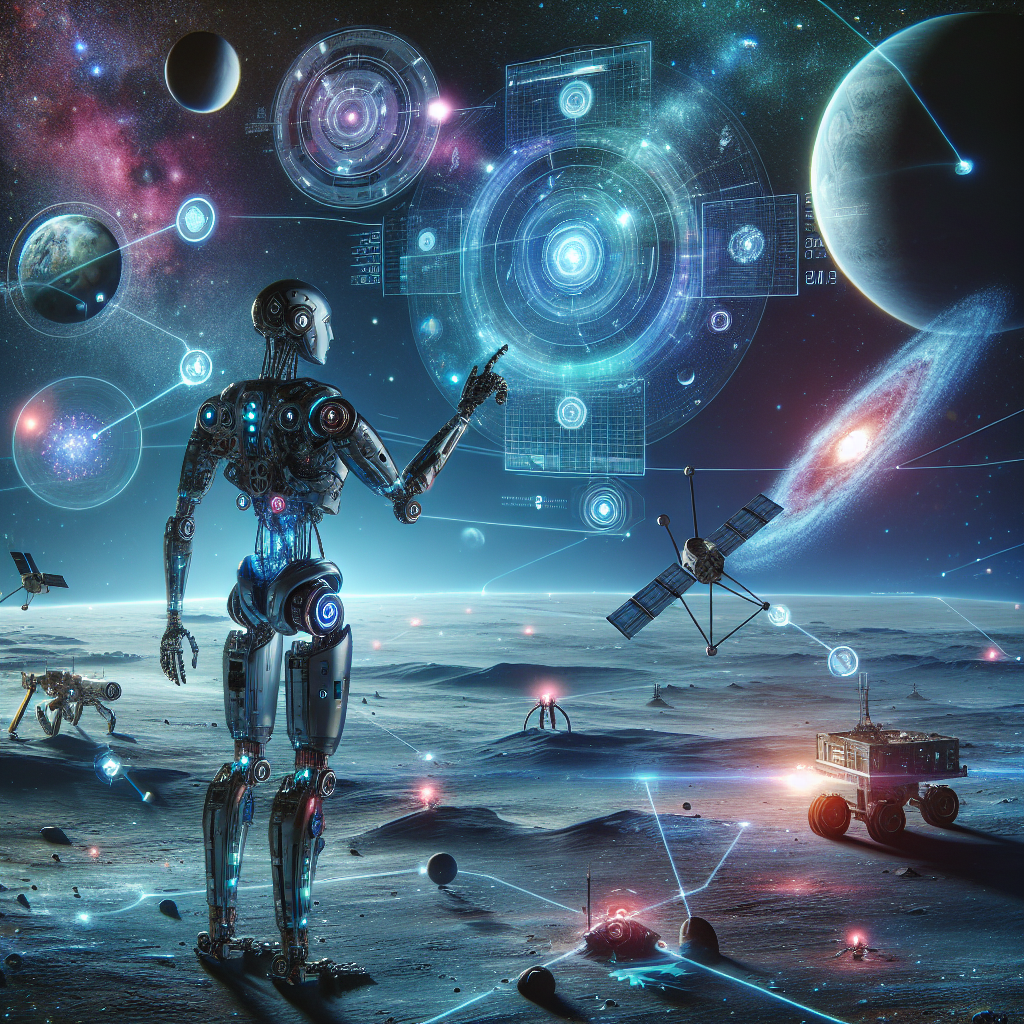The Role of AI in Space Exploration
Artificial Intelligence (AI) has become an increasingly important tool in the field of space exploration. From helping to analyze massive amounts of data to assisting in the development of autonomous spacecraft, AI is revolutionizing the way we explore the cosmos. In this article, we will explore the role of AI in space exploration and discuss some of the ways it is being used to advance our understanding of the universe.
One of the key ways in which AI is being used in space exploration is in the analysis of data. The amount of data collected by spacecraft and telescopes is staggering, and it would be impossible for humans to manually analyze all of it. AI algorithms are able to process this data much more quickly and efficiently than humans, allowing scientists to identify patterns and trends that would be difficult to detect otherwise.
For example, AI has been used to analyze data from the Hubble Space Telescope to identify new galaxies and stars. By using machine learning algorithms, researchers have been able to sift through the vast amounts of data collected by Hubble and pinpoint objects of interest much more quickly than would be possible with traditional methods.
AI is also being used to assist in the development of autonomous spacecraft. In the past, spacecraft were controlled by human operators on Earth, who would send commands to the spacecraft to perform various tasks. However, as spacecraft travel further from Earth and communication delays become longer, it becomes increasingly difficult to control them in real-time.
By using AI, spacecraft can be programmed to make decisions on their own based on the data they collect. For example, AI algorithms can be used to analyze images taken by a spacecraft’s cameras and identify potential hazards, such as rocks or other obstacles, that the spacecraft should avoid. This allows spacecraft to operate more autonomously and reduces the need for constant human intervention.
Another area where AI is making a big impact in space exploration is in the development of rovers and other robotic explorers. These robots are often sent to explore distant planets and moons where it is not feasible to send humans. By using AI, these robots can navigate difficult terrain, identify interesting geological features, and even make decisions on where to collect samples for analysis.
For example, NASA’s Mars rovers, Spirit and Opportunity, used AI algorithms to navigate the rocky terrain of the Martian surface. These rovers were able to autonomously avoid obstacles and select the most interesting targets for further investigation. This allowed them to cover much more ground and gather more data than would have been possible with human operators.
In addition to data analysis and autonomous spacecraft, AI is also being used to help predict and mitigate risks in space exploration. For example, AI algorithms can be used to analyze data from spacecraft and predict when components are likely to fail. By identifying potential problems before they occur, engineers can take preventative measures to avoid costly and dangerous failures.
Furthermore, AI can be used to model and simulate complex systems, such as the dynamics of a spacecraft entering a planet’s atmosphere. By running simulations with AI algorithms, engineers can test different scenarios and optimize the design of spacecraft to ensure a successful landing.
Overall, the role of AI in space exploration is expanding rapidly, and it is likely to play an even greater role in the future as technology continues to advance. By leveraging the power of AI, scientists and engineers are able to explore the cosmos in ways that were once thought impossible. From analyzing data to developing autonomous spacecraft, AI is revolutionizing the way we explore space and pushing the boundaries of human knowledge.
FAQs:
Q: What is AI?
A: AI, or Artificial Intelligence, refers to the ability of machines to perform tasks that typically require human intelligence, such as speech recognition, decision-making, and problem-solving.
Q: How is AI used in space exploration?
A: AI is used in space exploration to analyze data, develop autonomous spacecraft, assist in the operation of robotic explorers, and predict and mitigate risks.
Q: What are some examples of AI in space exploration?
A: Examples of AI in space exploration include analyzing data from the Hubble Space Telescope, developing autonomous Mars rovers, and predicting component failures on spacecraft.
Q: How does AI benefit space exploration?
A: AI benefits space exploration by enabling faster and more efficient analysis of data, allowing spacecraft to operate autonomously, assisting in the operation of robotic explorers, and predicting and mitigating risks.
Q: What is the future of AI in space exploration?
A: The future of AI in space exploration is likely to see even greater advancements, with AI playing an increasingly important role in analyzing data, developing autonomous spacecraft, and exploring new frontiers in the cosmos.

